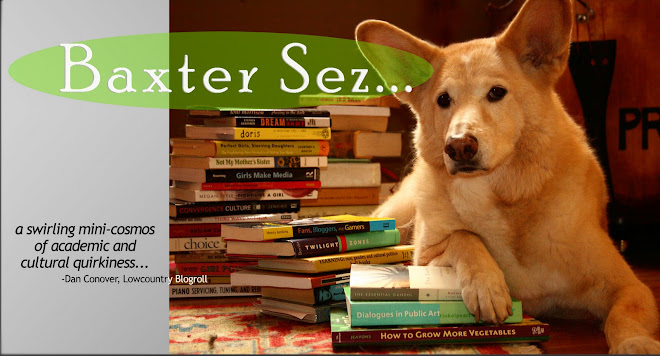Recently I was asked to write a little something on short notice for a feminist publication. Although I was the only one who was going to get credit, Biffle and I collaborated on the piece, a mostly-true (although condensed and simplified) account of some of the challenges of coming up with a last name for our soon-to-be-in-the-world progeny. It turns out that it wasn't quite right for the publication that requested it, so I figured I'd post it here.
One evening early in my pregnancy, my husband was talking with his parents about the baby.
“Well, son,” his father said, “I hope if it’s a boy you name him James Walter Biffle III.”
“I don’t think we’re going to do that,” Walter warily admitted. “In fact, I don’t think the baby’s last name is going to be Biffle. It’s going to be Biffle-Piepmeier.”
There was a long, long pause before his father finally asked, “Why is that?”
Walter pointed out there are two people in our family currently, each of whom has a different last name, so why should the baby’s last name automatically be just Biffle? While the silence continued, Walter tried harder to explain. He talked about our efforts to create an egalitarian marriage, about changing cultural norms around family names, even attempted a brief history of the patriarchy, but none of it made sense to them. His parents had never bothered to question tradition, and in fact, rather liked it. Their feelings were hurt, they said. Worse, they were embarrassed. Was this a rejection of them? Their family? What would their friends think? What would our child think?
Many straight couples with different last names opt to give their kids the husband’s last name, and I can see why: it’s the normal practice, and people understand it. A hyphenated last name like our baby will have can be cumbersome. What's more, there’s no drama when you go with the father’s last name. The man’s family is happy, and the woman’s family probably won’t be upset. People don’t freak out when you follow tradition.
After he got off the phone that night, Walter and I talked. We’d suspected that his parents probably wouldn’t approve of our naming choices, but we’d underestimated how hurt they’d be. Of course our decision wasn’t a rejection of them—-Biffle is going to be part of the baby’s last name!-—but there didn’t seem to be any way of getting them to see that.
I considered capitulating, going with the choice that would appease two of the new baby’s grandparents. Was it worth it to upset Walter’s parents for the sake of our principles?
The answer, we both realized, is yes. For us, the last name of this new person signifies something we believe, not just where one of us came from. This baby will be equal parts Biffle and Piepmeier and will be part of a family that’s striving to recognize both parents’ contributions, a family in which both of us are head of the household. Why should we go along with a practice we don’t agree with just because it’s familiar and easy and keeps people from being upset? But good traditions are important, and that’s why we’re trying to create some new ones. In this case, a tradition that recognizes the power of an equal partnership, not a partnership based on the principle of one person having to give something up.
Yes, Biffle-Piepmeier is possibly the world’s most inelegant last name, but we’ve decided that there are worse things than being inelegant. And worse things than upsetting our families.
Besides, many of my friends with kids have assured me that this is only the first of many parenting choices we’ll make that will upset one set of in-laws or the other, so we might as well get used to it.

